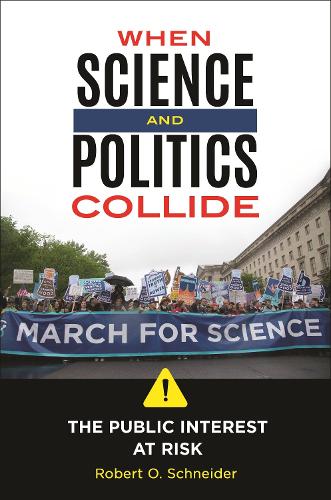
When Science and Politics Collide: The Public Interest at Risk
(Hardback)
Publishing Details
When Science and Politics Collide: The Public Interest at Risk
By (Author) Robert O. Schneider
Bloomsbury Publishing PLC
Praeger Publishers Inc
7th March 2018
United States
Classifications
Tertiary Education
Non Fiction
Science funding and policy
Scientific research
320.6
Physical Properties
Hardback
240
Width 156mm, Height 235mm
567g
Description
This book explains why science and politics collide, why this is an especially critical problem at this precise time in U.S. history, and what should be done to ensure that science and politics coincide. The United States is waging a political war against science, and the stakes are increasing. When it comes to areas in which science and politics must interact, such as genetics, climate, and energy, political interests are always pushing to spin the relevant science, but this becomes problematic when Americans abandon rationality for ideology or misinformation manufactured to confuse and persuade them. In a series of five contemporary examples, When Science and Politics Collide: The Public Interest at Risk makes the case that none of the ways in which science and politics currently communicate serve the public interest and that some of them actually result in great harm. It explains that, whether about climate change, vaccines, pandemics, or fracking, experimentally proven and reproducible data and evidence can save livesand poor, politically motivated policies can doom them. The book concludes with recommendations for creating a more perfect union between scientific facts and political agendas.
Reviews
In the U.S. as elsewhere, science and politics have had a long history of complicated interactions, but tensions between the two have increased in recent years. Schneider combines a history of this nuanced relationship with a thorough discussion of contemporary issues. . . . Summing Up: Highly recommended. All readers. * Choice *
2018 Top Community College Resource * Choice *
Author Bio
Robert O. Schneider, PhD (political science), is professor of public administration at the University of North Carolina at Pembroke. He is author of Managing the Climate Crisis: Assessing our Risks, Options, and Prospects.
